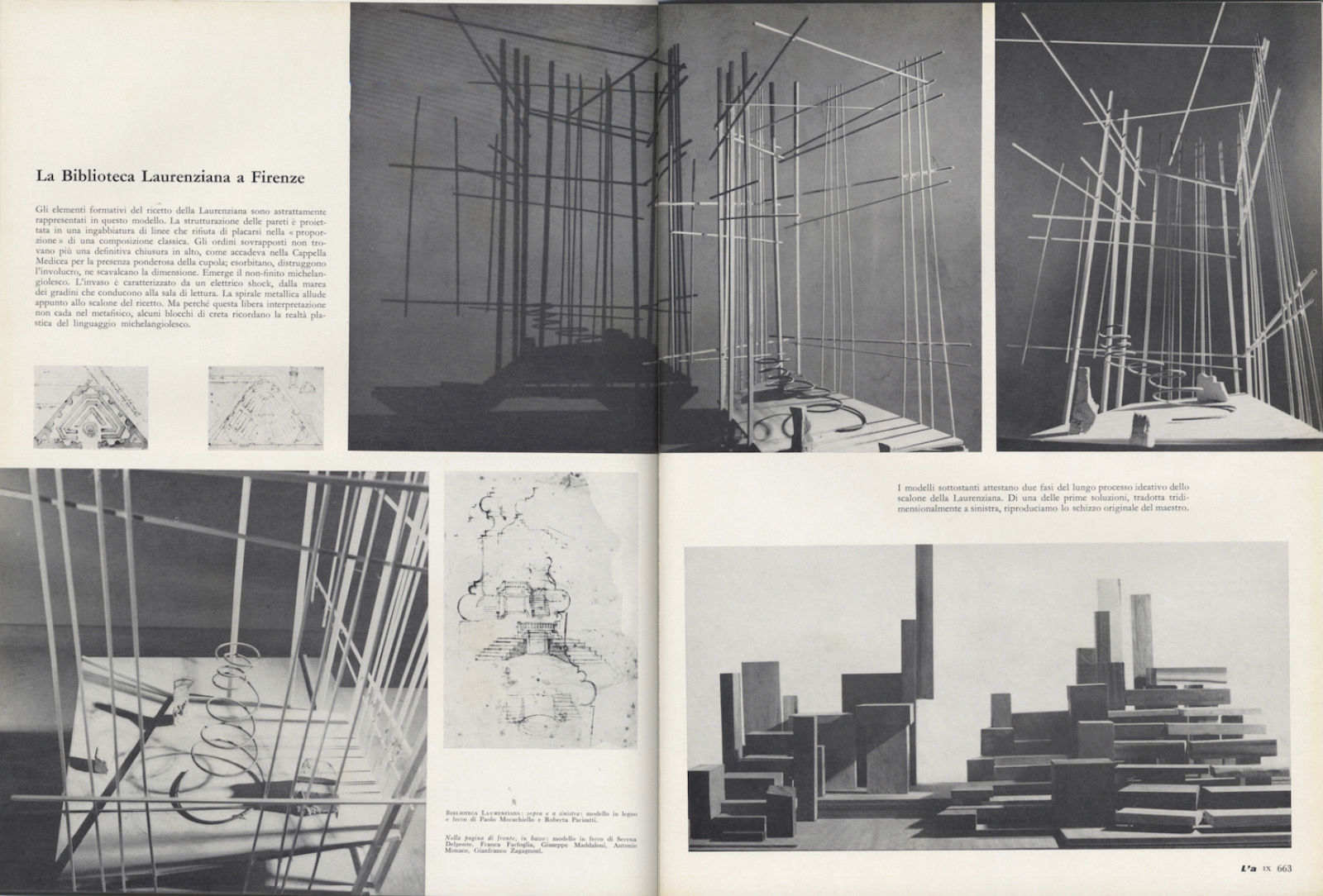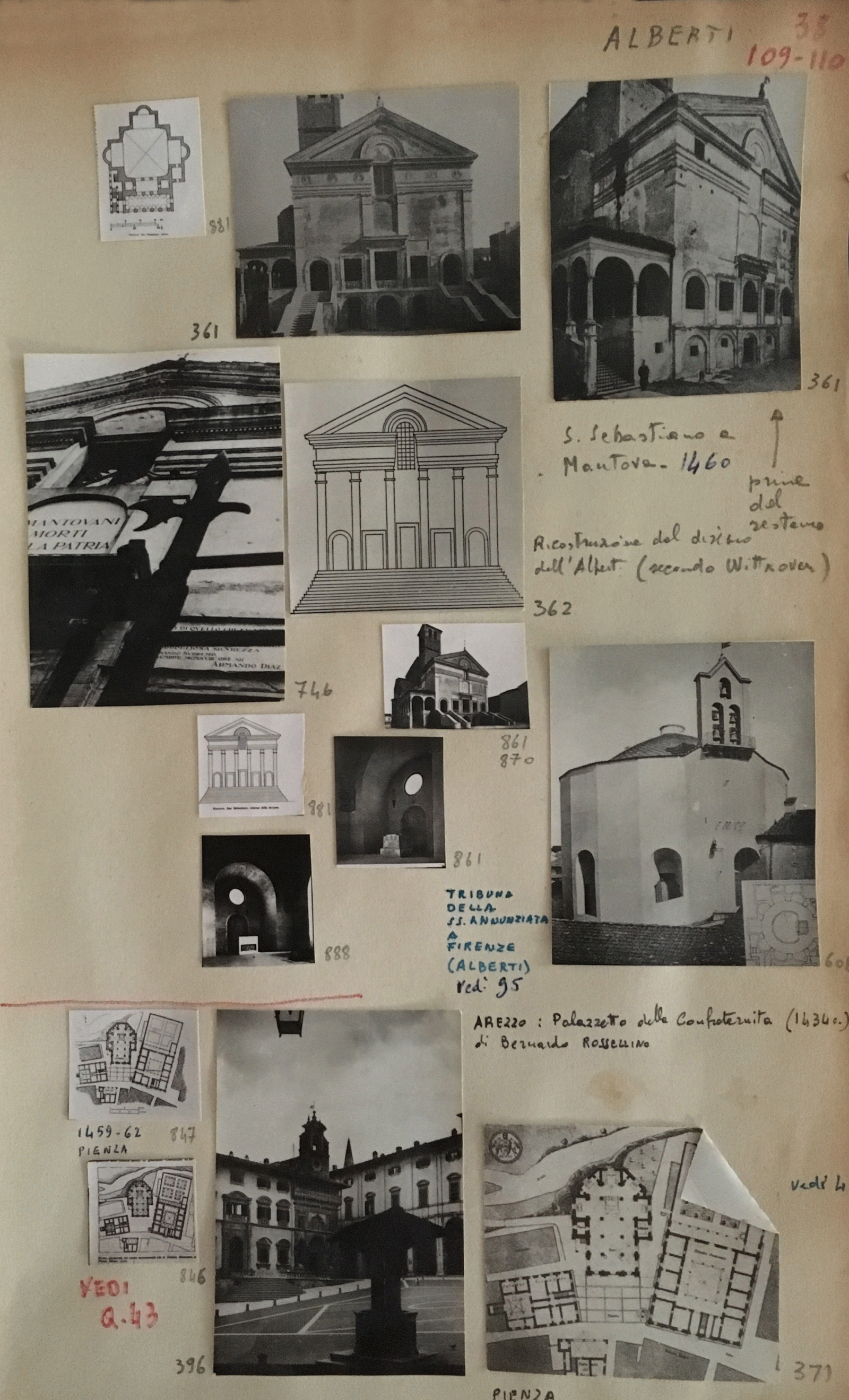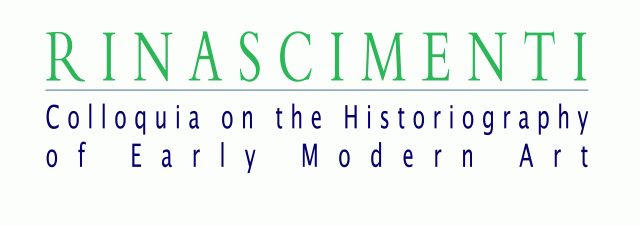Rinascimenti
Bruno Zevi. A joint lecture by Caspar Pearson and Roberto Dulio
organized by Villa I Tatti – The Harvard University Center for Italian Renaissance Studies and the research group Rinascimento conteso of the Kunsthistorisches Institut in Florenz – Max Planck Institut

Faced with the task of reconstruction following the Second World War, architects interpreted the Renaissance in a variety of ways. Sometimes seen as a model of 'rebirth,' the Renaissance could also appear as the chief repository of the defunct canons from which modern architects had to escape. Bruno Zevi continually negotiated such oppositions in his historical and critical writings, as he sought to interrogate the meaning of the Renaissance for the modern world. Having recourse, at different times, to both radical instrumentalization and polemical disavowal, Zevi grappled with a Renaissance suspended between historicity and contemporaneity.
Roberto Dulio: Bruno Zevi: cronache e storia
Bruno Zevi's historiographic project is the result of his militant critical engagement and his education, developed between Italy and US, where he fled to escape the racial laws introduced in his country. The determinism between history and project of the Roman School of architecture and the influence of the teachings of Lionello Venturi brought Zevi to redefine the maieutical connection between contemporary architecture and architecture of the past; between a specific expressive option and a precise political condition. Both results were by mean of a dialectic in terms of black and white, between two fiercely opposed positions, heated by hidden biographical instances and developed with captivating story-telling tension.
Caspar Pearson: Corresponding with a Chameleon: Bruno Zevi and Leon Battista Alberti
In his first book, Verso un'architettura organica (1945), Bruno Zevi described the Italian Renaissance architect and writer Leon Battista Alberti as a classicist who lacked a "sense of humour." Zevi returned to Alberti in subsequent publications, continually adjusting his view of a figure whom he found to be simultaneously relevant and untimely, impressive and unlikeable. His shifting position reflects a broader equivocation regarding the Renaissance; a period that, in Zevi's view, might constitute both a resource and an obstacle for modern architects.
Roberto Dulio is Assistant Professor in History of Architecture at the Facoltà di Architettura of Politecnico di Milano. His main investigation areas include modern and contemporary history of architecture and its relationships with arts and photography. He has curated several exhibitions, and published extensively in the field of history of contemporary architecture. He is the author of Introduzione a Bruno Zevi (Laterza, Roma-Bari 2008).
Caspar Pearson, Senior Lecturer at the University of Essex, is a specialist in the art, architecture, and urbanism of the Italian Renaissance. In addition, he writes about some aspects of contemporary architecture and urbanism, particularly in relation to the European Union and the process of globalisation. His work also explores issues relating to historiography and exhibitions. Caspar's first book, Humanism and the Urban World: Leon Battista Alberti and the Renaissance City, was published by Penn State University Press in 2011. He continues to work on Leon Battista Alberti and the theory and practice of Renaissance architecture. His current book project, The Classical Disorders, examines material from the Italian Renaissance but situates it in relation to material from other chronological periods and geographical areas.

Partner
in cooperazione con
01 gennaio 2018, ore 18:00
Kunsthistorisches Institut in Florenz – Max-Planck-Institut
Palazzo Grifoni Budini Gattai
Via dei Servi 51
50122 Firenze
Avviso
Questo evento viene documentato fotograficamente e/o attraverso riprese video. Qualora non dovesse essere d’accordo con l’utilizzo di immagini in cui potrebbe essere riconoscibile, da parte del Kunsthistorisches Institut in Florenz a scopo di documentazione degli eventi e di pubbliche relazioni (p.e. social media) la preghiamo gentilmente di comunicarcelo.



